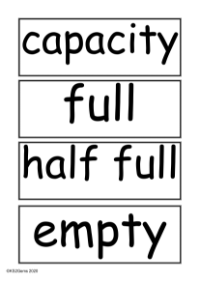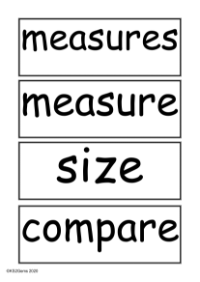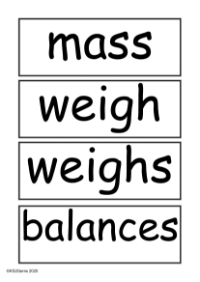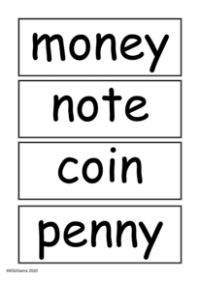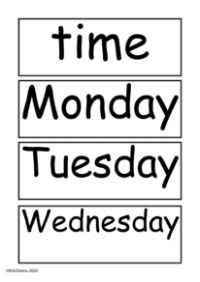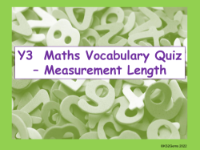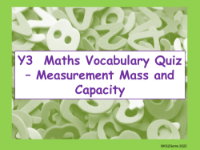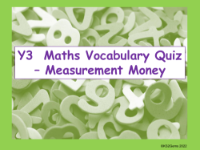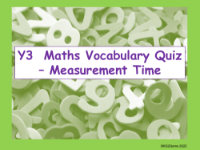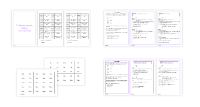Vocabulary - Measures: Length
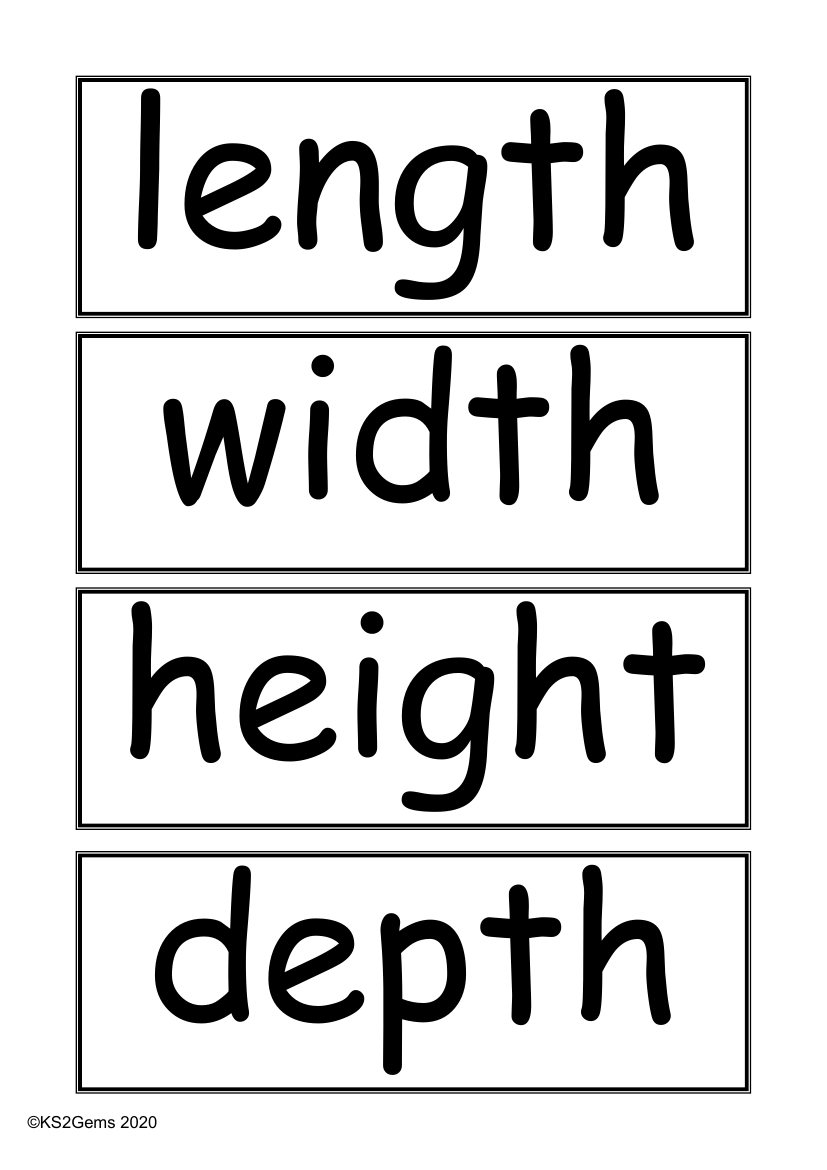
Maths Resource Description
The vocabulary list provided outlines a range of terms related to measures of length and distance, crucial in the field of mathematics and everyday measurements. Fundamental terms such as 'length', 'width', 'height', and 'depth' describe the dimensions of objects and spaces. These words are foundational for understanding and communicating physical measurements in various contexts. Additionally, comparative and superlative adjectives such as 'long', 'short', 'tall', 'high', and their respective forms like 'longer', 'shortest', 'tallest', and 'highest' are used to describe and compare the extent or altitude of items or distances.
Other terms like 'low', 'wide', 'narrow', 'deep', and 'shallow' provide more specific descriptors for dimensions, while 'thick' and 'thin' compare the density or width of objects. Expressions such as 'far', 'further', 'furthest', and 'near', 'nearer', 'nearest' help articulate the proximity or distance between points or objects. Units of measurement including 'kilometre (km)', 'metre (m)', 'centimetre (cm)', and 'millimetre (mm)' are standard metric units, while 'mile' is commonly used in the imperial system. Tools for measuring, like 'ruler', 'metre stick', 'tape measure', and 'trundle wheel', are instruments that assist in determining lengths and distances, and 'perimeter' refers to the total distance around the edge of a two-dimensional shape.
